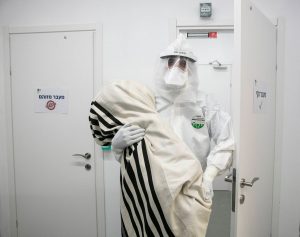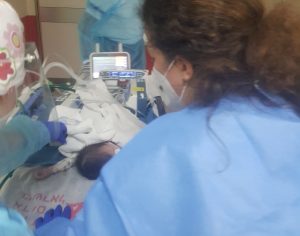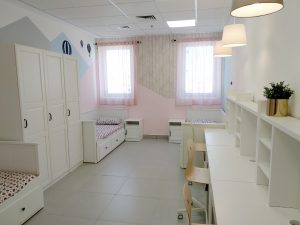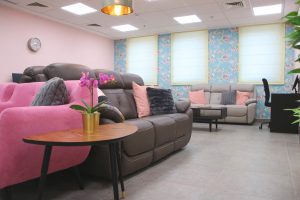June 9, 2020
When ‘Y’ was hospitalized in the Eating Disorders Unit of Mayanei Hayeshua, she was desperately ill – physically and emotionally. She was horribly emaciated. She was so weak that she could barely lift herself up. Most frightening of all, ‘Y’, a young teenager, had completely given up on herself. She had lost the will to live. She had no desire to live. She simply lay in her bed for hours on end, totally apathetic to everything and everyone. Before ‘Y’ came to MH she tried to harm herself in any possible way. Her goal had been to do away with herself. Y’s desire to end her own life continued to manifest itself during the early stages of her MH hospitalization. She was so desperate to end it all that she actually tried to electrocute herself.
Over the course of time, key variables underlying ‘Y’s illness began to emerge. ‘Y’ had come from a very difficult home environment. Her eating disorder issues both began and grew, to a great extent, because of the tense family dynamics coupled with ‘careless’ parenting. As a result, ‘Y’ was very severely damaged emotionally when she finally came to MH. In the early days of her hospitalization, there was real concern among the professional Staff – doctors, nurses, therapists – that ‘Y’ might be beyond rehabilitation. Despite acknowledging this as a possibility however, the MH Staff absolutely did not give up. Quite the contrary. They rose to the challenge and indeed their efforts began to pay off. Through the extensive therapies and consistently loving care she received at MH, gradually – very gradually – ‘Y’ started to show signs of wanting to return to life. There was a real breakthrough. ‘Y’ began to eat again resulting in some weight gain. She talked about wanting to resume her studies so she could ‘catch up’ to her peers. While very encouraging however, ‘Y’s progress was very far from a straight line.
Thanks to the high level vigilance and close monitoring on the part of the Eating Disorders Unit Staff, it became apparent that each time ‘Y’ went back to her family for a few days, the backsliding was quite serious. She returned to MH both apathetic and very resistant to eating. ‘Y’s desire to ‘come back to life’ had to some degree dissipated in the few days she spent with her family. The environment in her home, tense and negative, was the opposite of the warm, loving and caring approach that had caused ‘Y’ to start to recover her desire to live, to rejoin the human race. Nevertheless, along with ‘undoing’ the negativity of home visits, the Staff helped ‘Y’ move forward. In fact, ‘Y’s progress has been nothing short of extraordinary.
Very recently, it was decided that ‘Y’ was really ready to move on. Physically, she’s gained a sufficient amount of weight to be deemed ‘healthy’. Emotionally however is where the change in ‘Y’ is indeed miraculous. Her apathy has changed to enthusiasm. Her desire to do away with herself has morphed into a zest for life. ‘Y’ has big dreams for herself. She wants to experience all that she’s missed. ‘Y’ has ‘chosen life’. She wants to complete her studies and move on with her life. While in the early days at MH, there was real doubt that ‘Y’ could be saved, the Professionals now proudly and – justifiably with ‘nachas’ – describe ‘Y’ as ‘A Real Success Story’.
On her last day at MH, a party was held for ‘Y’. The party was not about saying ‘Good Bye’. It was about celebrating ‘Y’s miraculous return to life. Everyone, the Staff as well as the other girls in the Unit, with tears of joys in their eyes, shared hugs and good wishes. ‘Y’ was discharged to a ‘half-way’ home in Jerusalem with professional and caring supervision since her family home is simply not a viable option. As she excitedly and happily gets back into life, ‘Y’ will come for periodic follow-up care at MH to help ensure that from her very dark past, ‘Y’ is headed toward a bright future.








